Intro
Find instant Dehydration Relief Now with effective remedies and tips to replenish fluids, rebalance electrolytes, and revive body hydration, alleviating symptoms of dehydration and heat exhaustion.
Staying hydrated is essential for our bodies to function properly. Water makes up approximately 60% of our body weight and plays a crucial role in many bodily functions, such as regulating body temperature, transporting nutrients and oxygen to cells, and removing waste products. However, many of us often overlook the importance of hydration until we experience the symptoms of dehydration. Dehydration can occur when we lose more fluids than we take in, causing an imbalance in our body's water and electrolyte levels. This can happen due to various reasons, including excessive sweating, vomiting, diarrhea, or simply not drinking enough water.
In today's fast-paced world, it's easy to neglect our hydration needs, especially when we're busy with work, school, or other activities. However, dehydration can have serious consequences, ranging from mild symptoms like headaches and fatigue to life-threatening conditions like heat stroke and kidney damage. Fortunately, dehydration relief is readily available, and with the right strategies, we can prevent and treat dehydration effectively.
Dehydration can affect anyone, regardless of age, sex, or physical condition. Athletes and individuals who engage in strenuous physical activities are more susceptible to dehydration due to excessive sweating. Similarly, older adults, young children, and people with certain medical conditions, such as diabetes or kidney disease, are also at a higher risk of dehydration. Moreover, dehydration can be a significant concern in hot and humid climates, where the body loses more water through sweating. By understanding the causes, symptoms, and consequences of dehydration, we can take proactive steps to stay hydrated and maintain optimal health.
Understanding Dehydration
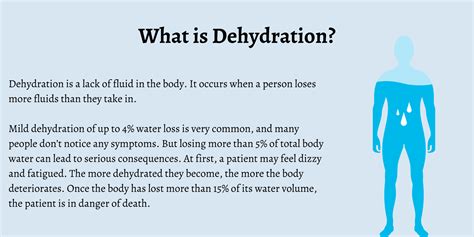
Causes of Dehydration
The causes of dehydration can be broadly categorized into two main types: external and internal. External causes include environmental factors, such as hot and humid climates, high altitude, and excessive physical activity. Internal causes, on the other hand, include medical conditions, such as diabetes, kidney disease, and gastrointestinal disorders. Other factors, such as age, sex, and certain medications, can also contribute to dehydration. By understanding the underlying causes of dehydration, we can take targeted measures to prevent and treat it effectively.Recognizing the Symptoms of Dehydration
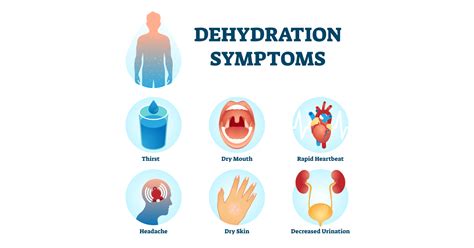
Treatment Options for Dehydration
Treatment for dehydration depends on the severity of the condition. Mild dehydration can be treated with oral rehydration solutions, such as sports drinks or electrolyte-rich beverages. Severe dehydration, on the other hand, may require intravenous fluids and hospitalization. In addition to these treatments, there are several home remedies that can help alleviate dehydration symptoms, such as: * Drinking plenty of water and electrolyte-rich beverages * Eating hydrating foods, such as watermelon and cucumbers * Avoiding caffeine and sugary drinks * Taking regular breaks to rest and cool down * Using cooling devices, such as fans and cool compressesPreventing Dehydration
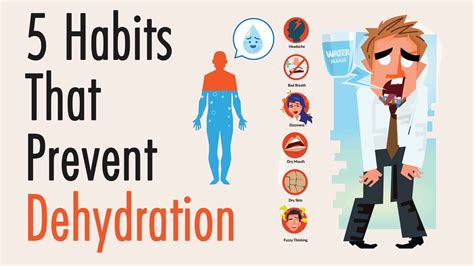
Dehydration in Specific Populations
Dehydration can affect anyone, but certain populations are more susceptible to it. These include: * Athletes and individuals who engage in strenuous physical activities * Older adults and young children * People with certain medical conditions, such as diabetes and kidney disease * Individuals who live in hot and humid climates * People who take certain medications, such as diuretics and laxativesDehydration Relief Strategies
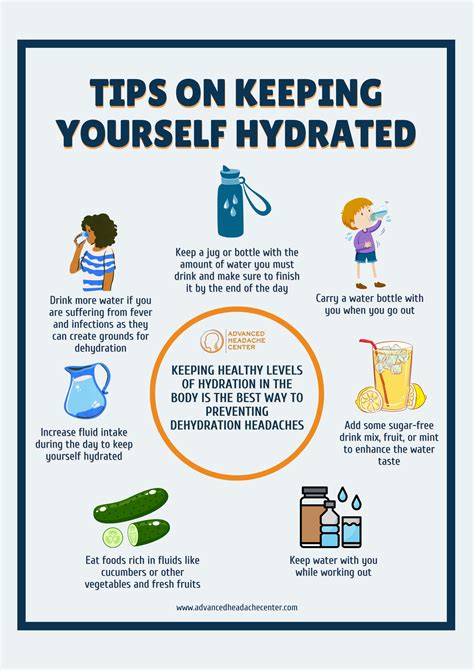
Dehydration and Nutrition
Nutrition plays a crucial role in maintaining hydration levels. A balanced diet that includes hydrating foods, such as fruits and vegetables, can help prevent dehydration. Additionally, electrolyte-rich foods, such as bananas and avocados, can help replenish lost electrolytes. It's also essential to avoid foods and drinks that can exacerbate dehydration, such as caffeine and sugary drinks.Dehydration and Exercise
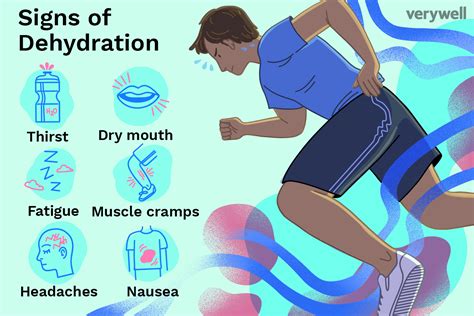
Dehydration and Climate
Climate plays a significant role in dehydration. Hot and humid climates can cause our bodies to lose more water through sweating, increasing the risk of dehydration. It's essential to take extra precautions to stay hydrated in these climates, such as drinking plenty of water, avoiding excessive heat exposure, and taking regular breaks to rest and cool down.Conclusion and Next Steps

We invite you to share your thoughts and experiences with dehydration in the comments section below. Have you ever experienced dehydration? What strategies do you use to stay hydrated? Share your tips and advice with others to help them stay healthy and hydrated.
What are the symptoms of dehydration?
+The symptoms of dehydration can vary depending on the severity of the condition. Mild dehydration may cause symptoms like dry mouth, fatigue, and headaches, while severe dehydration can lead to more serious complications, such as seizures, brain damage, and even death.
How can I prevent dehydration?
+Preventing dehydration is easier than treating it. By taking a few simple steps, you can ensure your body stays hydrated and healthy. These include drinking plenty of water throughout the day, monitoring urine output and color, avoiding excessive sweating and heat exposure, eating hydrating foods, and avoiding caffeine and sugary drinks.
What are the best dehydration relief strategies?
+There are several dehydration relief strategies that can help alleviate symptoms and prevent complications. These include oral rehydration solutions, such as sports drinks and electrolyte-rich beverages, intravenous fluids and hospitalization for severe dehydration, home remedies, such as drinking plenty of water and eating hydrating foods, and preventive measures, such as monitoring urine output and avoiding excessive sweating.
